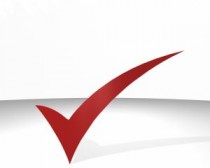
It’s true… reference checks take time. Not every reference will be available to speak with you. Good reference checks require you to make the effort of digging a little deeper and using your analytical skills.
But here’s the thing… they’re worth it. For your top candidates, reference checks provide you with qualitative data that can inform your hiring decision once you’ve weighed all the quantitative data. You want an employee who can not only perform the job, but who will be the best fit for your organization and offer you maximum growth potential for future projects.
The key is to conduct effective, efficient reference checks that give you the best chance of obtaining the information you need in the least amount of time. This requires a little preparation on your part, and a clear understanding of your strategy.
Preparation
- Put the onus on the candidate. Have the candidate email their references (cc’ing you or indicating they will be forwarding the response to you), requesting they confirm their willingness to be contacted. You won’t waste time trying to reach people who won’t respond, you’ll see if the candidate can take initiative in a professional manner, and you’ll already have an introduction to the reference by the time you speak.
- Request references from a variety of business contacts. Sometimes supervisors spent very little face time with former employees, or only knew them in very specific situations. To get a well-rounded picture of the candidate, request references from colleagues, clients, and vendors, too.
- Review pertinent legalities concerning reference checks. You’re allowed to ask more than you probably think you are, but review legal restrictions to be confident you are proceeding correctly. Standards regarding discriminatory questions are the same as for candidate interviews. Get written permission from the candidate to contact references. Assume a candidate could request the reference report at any time – would you be comfortable having them see it?
- Have your job description and the candidate’s resume available. You will need to refer to them during your conversation. You want to make sure the candidate can perform specific tasks and meets specific requirements. These documents will help keep your conversation on topic.
- Schedule the conversation in advance. This is a professional courtesy and shows respect for the reference’s valuable time. It allows them to gather standard data on the candidate, especially if they need to contact multiple departments to do so. It should also ensure both you and the reference have a low likelihood of being interrupted or otherwise unavailable for a conversation.
During the Reference Check
- Introduce yourself, your organization, and your open position. This should be a conversation, not an interrogation. Give the reference an idea of the environment in which the candidate would be working and the tasks they would be expected to execute. This will help the reference give you specific, pertinent information about the candidate’s likely performance if hired.
- Clarify your purpose. You are trying to determine if the candidate will be a good fit for the position and your organization, not to dig up dirt on the candidate. Make sure the reference knows this. You will come across as a professional, and they are likely to be more forthcoming in their answers if you take the time to establish this trust.
Check back tomorrow for more tips on handling the reference call, as well as what to do with all that information you’ve just gathered.